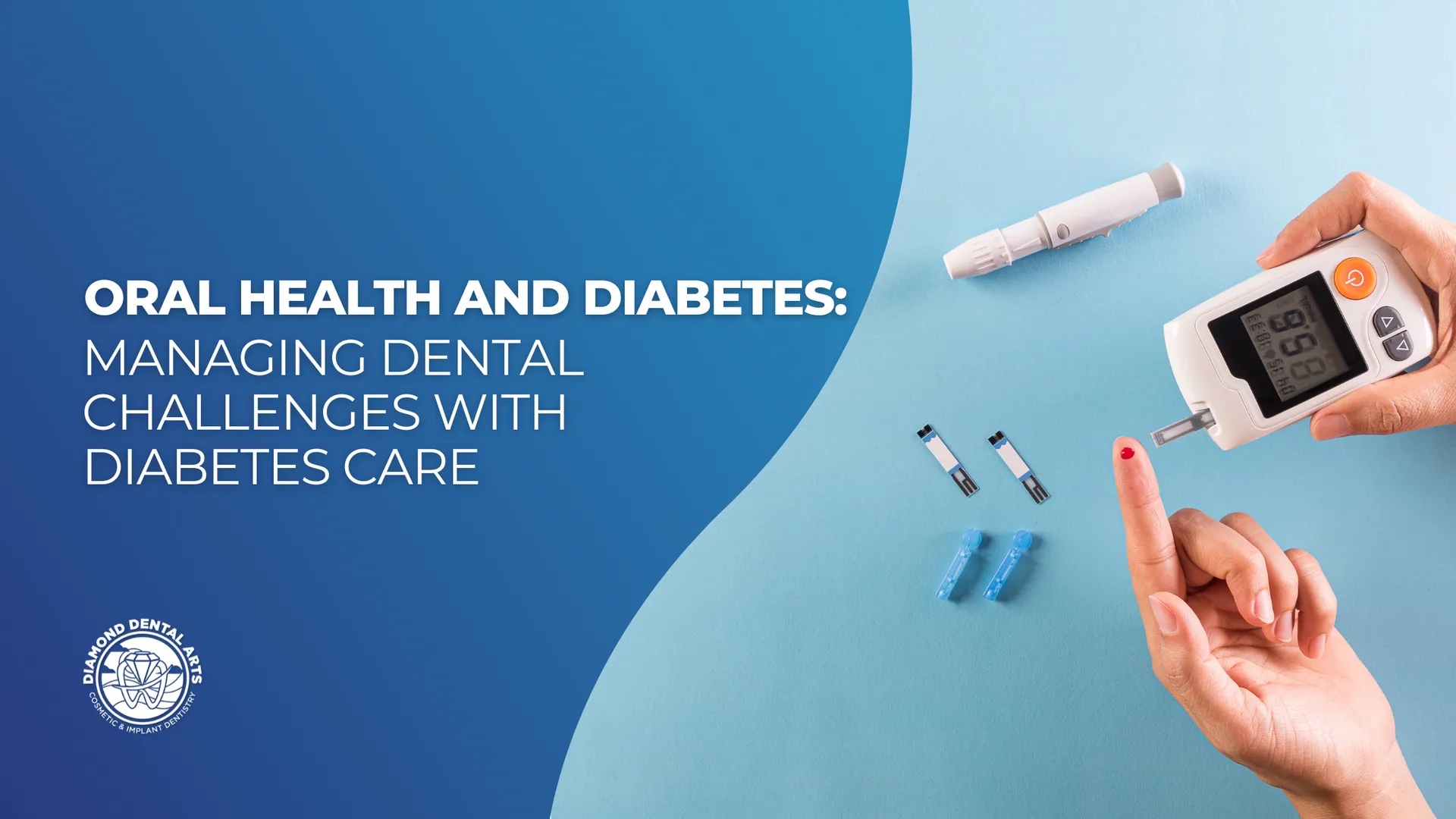
Living with diabetes involves a careful balance of diet, medication, and lifestyle choices to maintain optimal health. However, one crucial aspect that often gets overlooked is our oral health. The connection between diabetes and dental health is significant and managing one can have a profound impact on the other. This blog explores the intricate relationship between oral health and diabetes and offers practical tips for managing dental challenges in diabetes care.
The Connection Between Diabetes and Oral Health
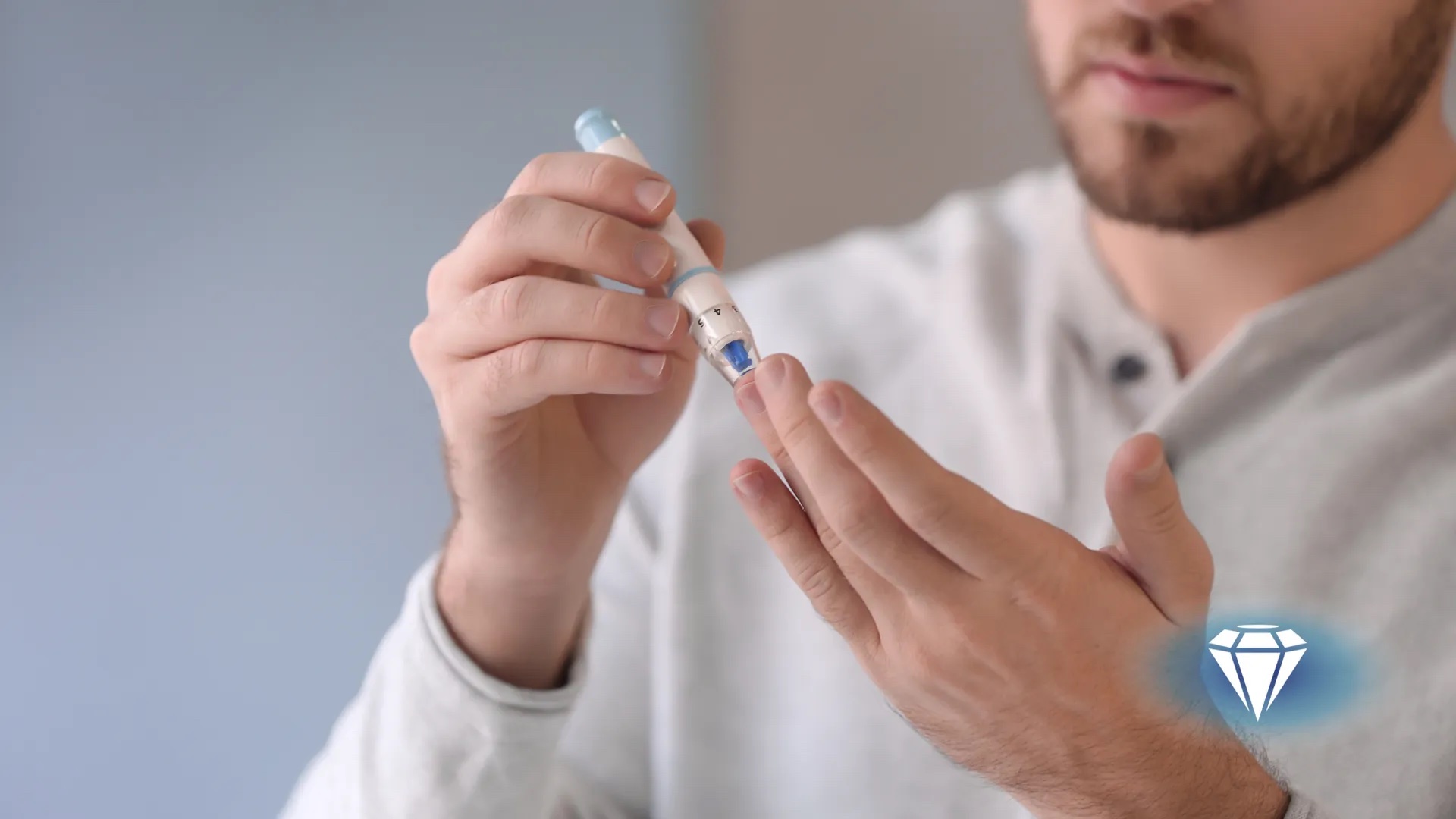
Diabetes, both type 1 and type 2, significantly impacts the body's ability to properly process sugar, leading to challenges in maintaining stable blood sugar levels. When these levels are elevated, a host of complications can arise, affecting various parts of the body, including the mouth. Poorly managed diabetes can result in an accumulation of glucose in saliva, providing a perfect breeding ground for harmful bacteria. This can not only lead to oral health issues but also exacerbate the overall impact of diabetes on the body's systems. It is crucial for individuals with diabetes to closely monitor their blood sugar levels and practice good oral hygiene to mitigate potential complications.
Dental Problems That Are Common In Patients With Diabetes

Gum Disease (Periodontitis)
Gum disease, or periodontitis, is a common and serious complication for patients with diabetes. Diabetes impairs the body’s ability to fight infections, making the gums more susceptible to inflammation and infection. Elevated blood sugar levels contribute to higher glucose levels in saliva, which enables the growth of harmful bacteria that can lead to gum disease. Additionally, gum disease can make it harder to control blood sugar levels, creating a vicious cycle. Symptoms such as swollen, bleeding gums, persistent bad breath, and loose teeth are indicators of gum disease.
Dry Mouth (Xerostomia)
Dry mouth, or xerostomia, is another common issue for patients with diabetes, resulting from both high blood sugar levels and certain diabetes medications. Reduced saliva production can lead to persistent dryness in the mouth, which not only causes discomfort but also increases the risk of tooth decay, gum disease, and oral infections. Saliva plays an important role in neutralizing acids, washing away food particles, and maintaining a healthy balance of bacteria in the mouth. Without adequate saliva, these protective functions are compromised. To manage dry mouth, individuals with diabetes should stay well-hydrated, chew sugar-free gum or suck on sugar-free candies to stimulate saliva flow. Consulting with our dentists at Diamond Dental Arts about saliva substitutes or medications can also help alleviate symptoms and protect oral health.
Thrush (Oral Candidiasis)
Thrush, or oral candidiasis, is another concern for patients with diabetes. This fungal infection poses a particular risk for individuals with diabetes by elevating blood sugar levels creating an environment conducive to the growth of Candida, the yeast responsible for thrush. This infection manifests as white patches on the tongue, inner cheeks, and sometimes the roof of the mouth, causing discomfort. People with diabetes are more susceptible to thrush due to their compromised immune system and often higher levels of glucose in their saliva, which fuels fungal growth.
Slow Healing
Slow healing is a sign of significant concern for our patients with diabetes, affecting various parts of the body, including the mouth. Diabetes can impair blood circulation and immune function, leading to reduced delivery of nutrients and oxygen to tissues and slower repair of damaged cells. Consequently, cuts, sores, and other oral injuries heal more slowly and are more prone to infection. This slow healing process can complicate routine dental procedures and minor oral health issues, potentially leading to more severe conditions if not properly managed.
Managing Dental Health with Diabetes Care

As discussed earlier, managing dental health with diabetes is very important. The condition not only affects blood sugar levels but also has significant implications for oral health. Here are proactive steps to prevent dental complications:
Maintain Blood Sugar Levels
Maintaining blood sugar levels is very important for our patients with diabetes, as it helps prevent a wide range of complications, including those affecting oral health. Consistent blood sugar control involves a combination of a balanced diet, regular physical activity, medication adherence, and frequent monitoring of blood glucose levels. A diet rich in fiber, lean proteins, and healthy fats, while limiting sugary and processed foods, supports stable blood sugar levels. Regular exercise enhances insulin sensitivity, making it easier for the body to use glucose effectively. Medications, whether insulin or oral hypoglycemics, must be taken as prescribed to manage blood sugar levels efficiently. Routine monitoring allows for timely adjustments in diet, activity, or medication. By maintaining blood sugar within target ranges, our patients with diabetes can reduce the risk of gum disease, dry mouth, and other oral health issues, contributing to overall better health and quality of life.
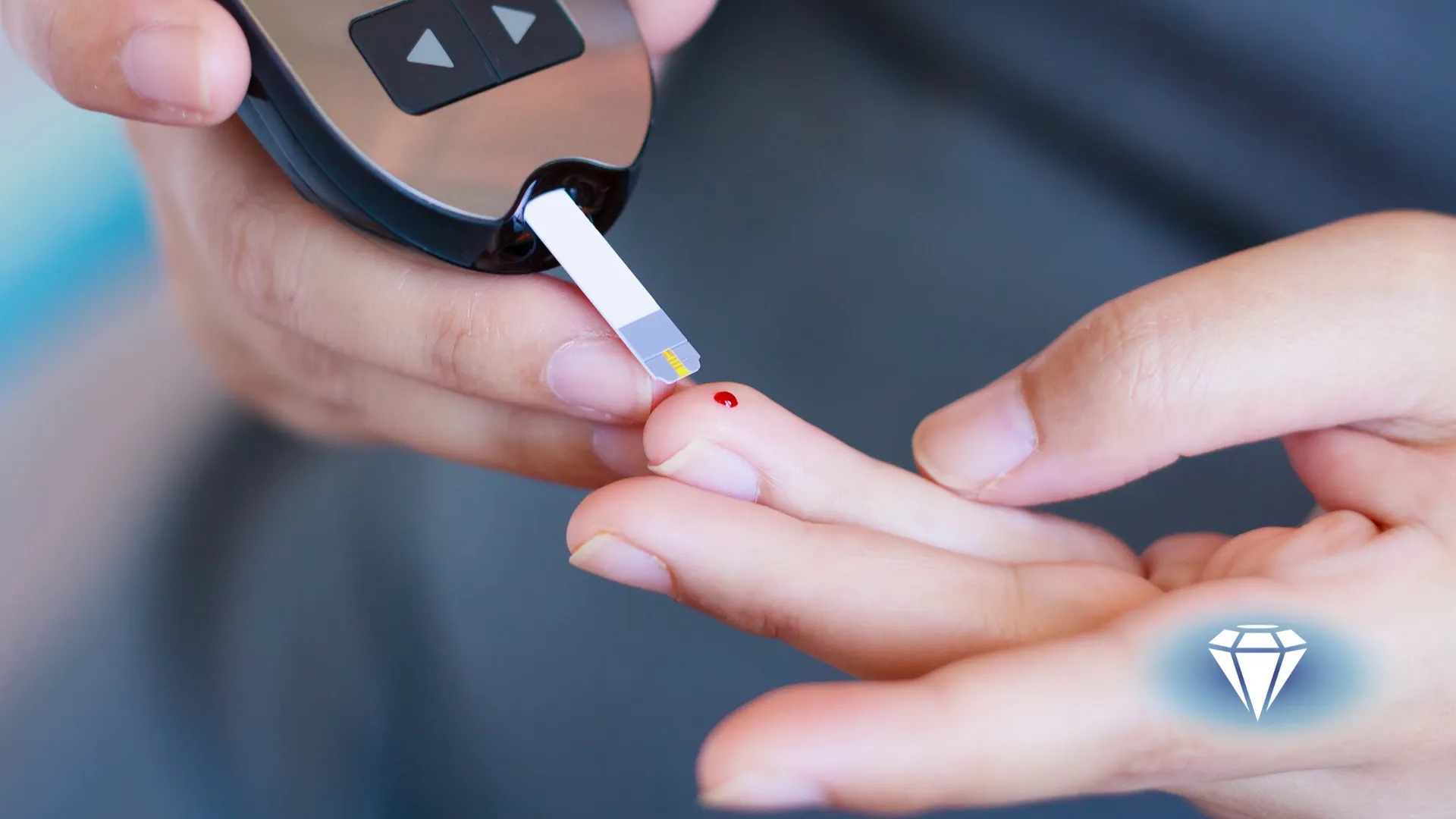
Regular Dental Checkups
Regular dental checkups are essential for our patients with diabetes, as they help prevent and manage oral health complications associated with the condition. Routine visits allow our dental team at Diamond Dental Arts to detect early signs of these issues, providing timely interventions that can prevent minor problems from becoming serious. During checkups, our dental team can perform thorough cleanings to remove plaque and tartar, offer personalized oral hygiene advice, and monitor any changes in oral health. Additionally, informing our dental team about your diabetes enables us to tailor care and provide specific recommendations that complement diabetes management.
Your Daily Oral Hygiene Routine Living With Diabetes
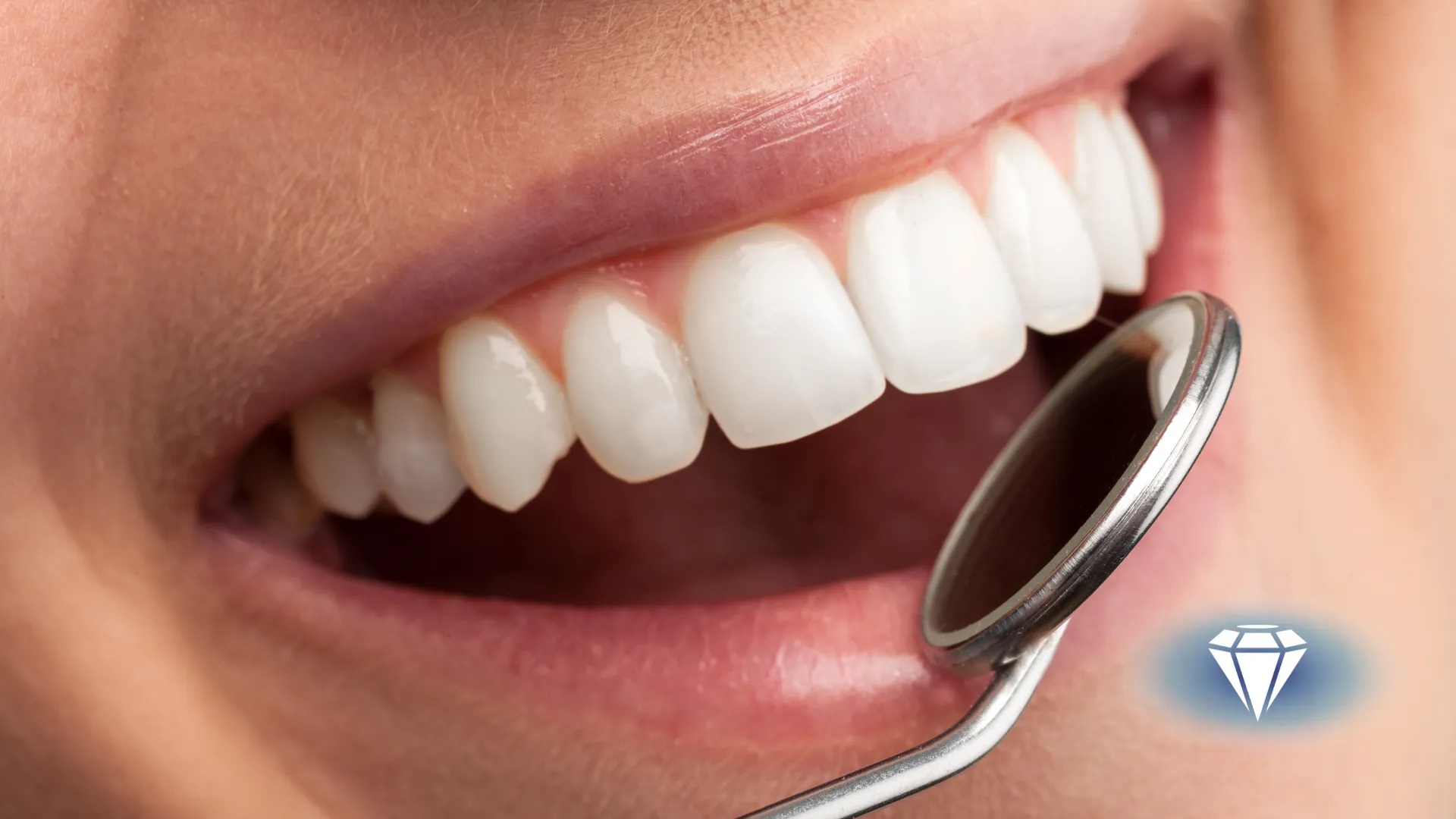
Daily oral hygiene is especially important for our patients with diabetes, as it helps prevent the heightened risk of gum disease, tooth decay, and other oral health issues associated with the condition. Listed below is a daily oral hygiene routine that will help keep you on track:
Brush Twice Daily
Use fluoride toothpaste and a soft-bristled toothbrush to brush your teeth at least twice a day. Pay special attention to the gum line and hard-to-reach areas. Brushing twice a day is a fundamental practice for individuals with diabetes to help mitigate the increased risk of oral health issues such as gum disease and tooth decay. By brushing thoroughly with fluoride toothpaste at least twice daily, individuals can remove plaque and food particles, reducing the risk of bacterial buildup and subsequent dental problems. Integrating this simple yet crucial step into daily routines is vital for preserving oral health and preventing complications associated with diabetes.
Floss Daily
Flossing effectively removes plaque and food particles from between teeth and under the gumline, areas that a toothbrush cannot reach. This practice helps prevent the formation of tartar, which can lead to gum disease if not removed. Daily flossing reduces the risk of oral infections that can complicate diabetes management by affecting blood sugar levels. For our patients with diabetes, incorporating flossing into your daily routine is essential for maintaining healthy gums and teeth.
Antimicrobial Mouthwash
Using antimicrobial mouthwash is particularly beneficial for individuals with diabetes, as it helps manage the increased risk of oral infections and gum disease. An antimicrobial mouthwash effectively reduces these bacteria, helping to prevent plaque buildup, gingivitis, and other oral health issues. Regular use of mouthwash can reach areas in the mouth that brushing and flossing might miss, offering an additional layer of protection.
Stay Hydrated
Drinking plenty of water is important for individuals with diabetes, as proper hydration plays a significant role in managing blood sugar levels and maintaining overall health. Dehydration can lead to elevated blood glucose levels, as the body has less fluid to dilute the sugar in the bloodstream. Additionally, adequate hydration helps support kidney function, enabling the body to effectively flush out excess glucose through urine. For oral health, staying well-hydrated promotes sufficient saliva production, which is essential for protecting teeth and gums from decay and infection. Saliva helps neutralize acids, wash away food particles, and maintain a healthy balance of bacteria in the mouth.

Managing oral health is a vital aspect of diabetes care, as the condition significantly increases the risk of various dental challenges such as gum disease, dry mouth, thrush, and slow healing of oral injuries. Effective management of blood sugar levels is crucial in preventing these complications and promoting overall well-being. A comprehensive approach that includes regular dental checkups, daily oral hygiene practices such as brushing, flossing, and using antimicrobial mouthwash, along with staying well-hydrated, can substantially mitigate oral health risks.
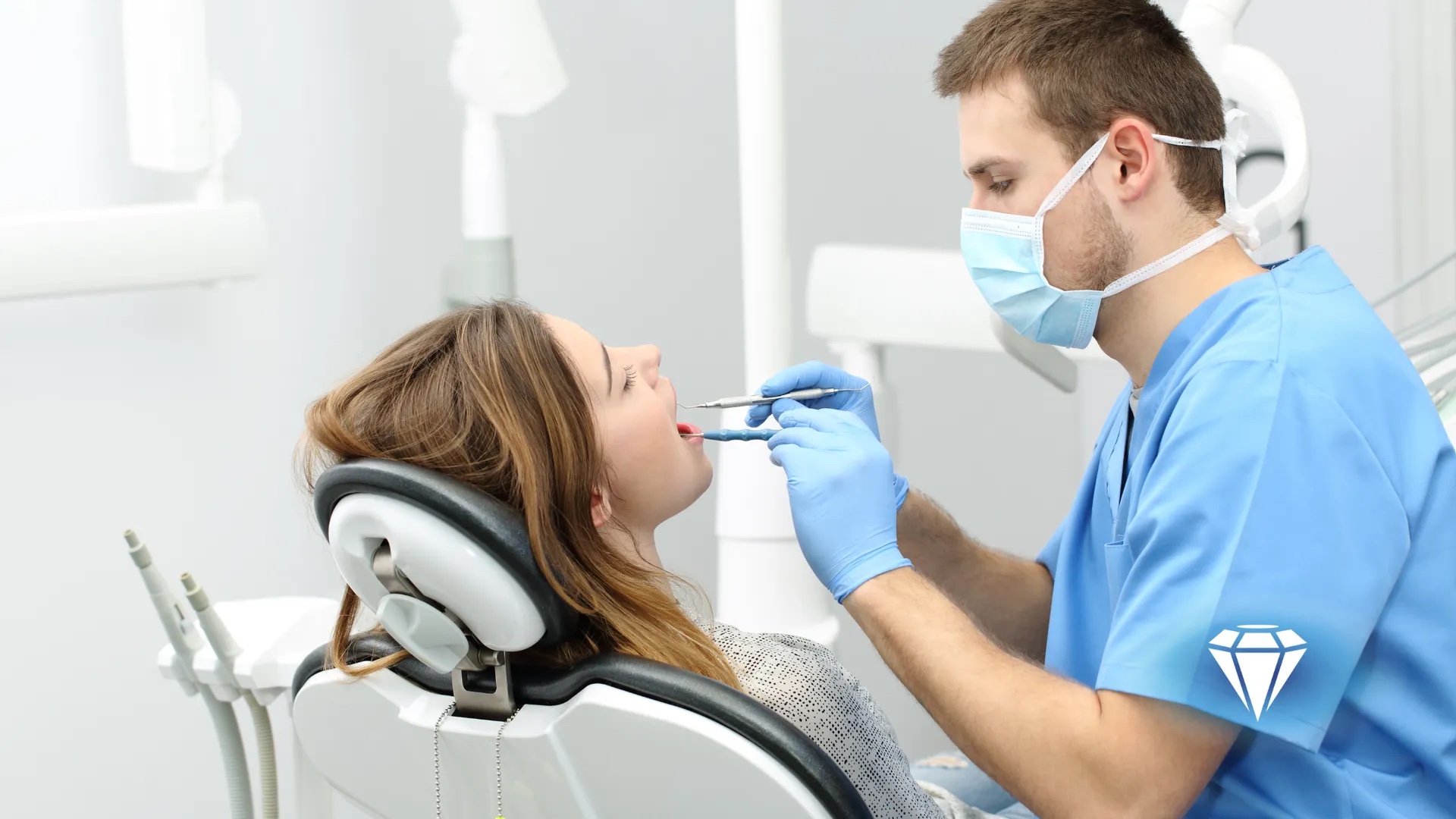
By integrating these practices into your routine, our patients with diabetes can better manage their condition, prevent severe dental issues, and enhance their quality of life. Recognizing the interconnectedness of diabetes and oral health underscores the importance of a proactive and collaborative approach to health care. For a personalized dental checkup and dental cleaning, call our dental practice at (941) 239-6557 to schedule an appointment and maintain optimal oral health!
